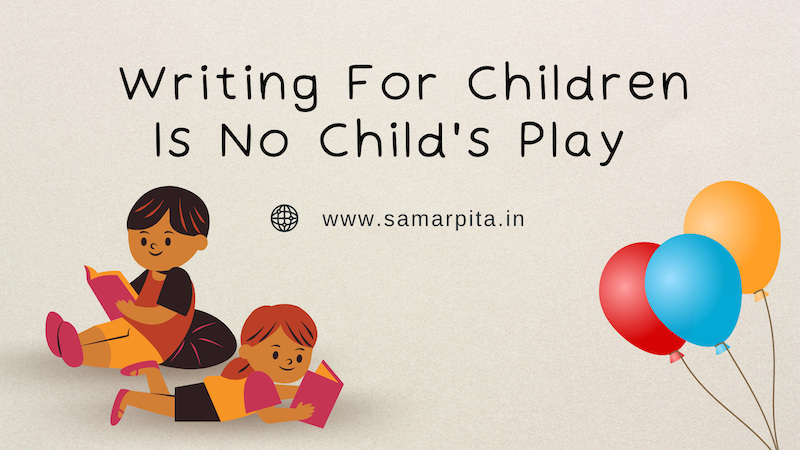Children are the most difficult audience to please. Their choices are simple, but they know exactly what they will like. And if they don’t like what you give them, they will not mince words or emotions just to make you feel good about your work! This applies to food, clothes, and….books! Anyone who has been enthralled with wonderful tales all through their childhood, knows now as a grownup how difficult those stories are to create.
Growing up, I have been so smitten but the books I was reading, that I knew I wanted to write stories like those when I grew up. Specially, like Enid Blyton. (Don’t tell me they were problematic. We find them problematic now, back then they were just for reading pleasure and nobody really learnt to discriminate after reading Blyton’s books, did they?)
Over the years a lot of people have asked me how do they get their children to read. It took me a while, but I soon realised that all the people asking this question, were non-readers. Well, children pick up from what they watch their elders doing. Very rarely do children whose parents don’t read, read themselves. A couple of years ago, I had written this post about Tips To Get Your Children To Read and not surprisingly, it has been read more than 30k times. If you are in a dilemma, this post might help you too.
So, if you are a non-reader, will your child never be someone who loves to read? Not necessarily. While teaching your child to read, maybe you can teach yourself too, for first. Nothing bad comes out of this habit, except of course a regular dent in your bank account but libraries can solve that problem. So, pick up something light and start reading. Here is a list of 100 BEST CHILDREN’S BOOKS OF ALL TIME curated by Time magazine. Maybe you can pick something for your child from here. I would also like to stress on one very important thing here – despite having been a hardcore reader all my life, I want parents to remember that reading is not the only hobby a child can have. Some people don’t have the mind for reading and that is okay. If your child is sporty and outdoorsy, let them be. Please don’t force them.
I have so many memories of my childhood revolving books. My father buying me books, my uncle taking me to a book shop and buying me my first Enid Blyton, my father reading me story books when I had not even learnt to read, me raiding my mother’s childhood book stash which stood taller than me, and my mother telling me about her library visits with my grandfather every Sunday and how she would finish reading the book in the bus ride back itself and then have to wait an entire week to go to the library again.
I realise I have been a more enthusiastic reader as a child than as an adult. My analysis of this is that books written for children do more than just capture attention – they take the reader to a parallel/alternate world where the reader becomes one with the characters of the story. Now, we read them as stories, knowing they are works of fiction. Back then, despite knowing that what we are reading is made up and not true, each one of us would become one with the stories and their stories.
Now in my 40s, I hope to get down to writing for children. I have no idea what children like, I don’t live with any. I literally have no notes to consult, but something tell me that should not be an excuse I can use to run away from writing what I have wanted to all my life. I hope next year, today, I would be updating this post with information about the stories I have written for children. All the best to me 🙂
If you are looking for an excellent manuscript editor, someone to create content for your business, or an expert to help build your personal or professional brand on social media, then look no further and connect with me at editor@samarpita.in I can be followed on instagram at @samarpita and on twitter at @samarpitadotin.
***********
Read my ebook WRITE. EDIT. PROMOTE. to learn the basics about becoming an author – from writing your own book, to editing your first draft, and to promoting your book yourself! You can also read my ebook How To Write A Story Effectively and learn some valuable lessons about how a story can go from average to extraordinary. This book is part 1 of the series.
In fiction, I have two short stories for children in an ebook called Bedtime Stories.

